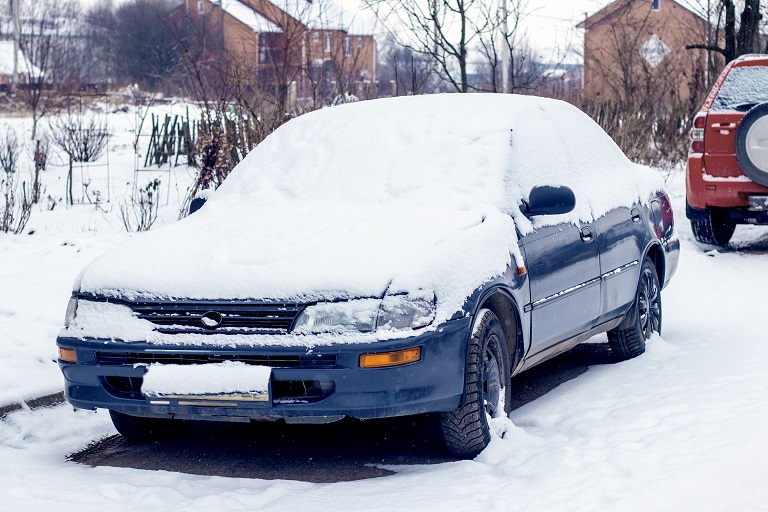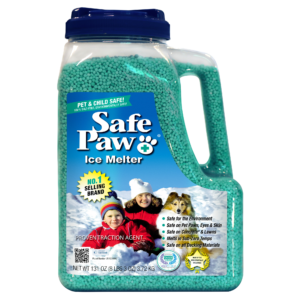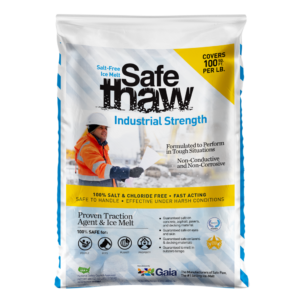3 Reasons Why You Should Not Use Sand On Your Premises

Every winter, the most sought-after product by every household and the commercial establishment is ice melt and traction agents. Every winter, we all try different things to protect ourselves, from looking for innovative ways to create tire grips on snow to create a viable safety net. So how can you ensure your premises do not get affected by the after-effects of a blizzard?
Besides using different types of ice melt for blizzard safety, we also use other traction agents to create a better grip while walking or driving on snow.
A few popular ice melts- calcium chloride, sodium chloride, potassium chloride, carbonyl diamide or Urea, magnesium chloride, etc.
A few less expensive traction agents include- sand, kitty litter, sawdust, etc.
But Why Should You Not Use Sand On Your Premises?
Gets Buried Under The Snow
Sand does not provide any blizzard safety to your premises. It is applied on icy surfaces for additional traction after spreading an ice melt. However, it will remain on the surface till the ice does not melt and gets buried under the water or flows away.
If it flows with the melted water, you will have to reapply it, making it repetitive and tedious. Although you have to pay attention to logistics; however, we believe you need to value the time you spend in reapplying it.
Not Environment-Friendly
After the ice melts and the sand flows along with the melted water near the drains, it has a high chance of blocking it. It can get inside the gutters and clog them, making it difficult for the water to flow freely into the sewers. You will have to incur additional expenditures to clean the drains.
If you have large premises, the amount of sand buildup can harm your vegetation too. Excessive sand deposits on the sand will absorb the moisture from the soil, thus leaving your plants and flowers wilted and lifeless.
Get ready for winter with the ONLY Pet Safe Ice Melt you can trust
Not Entirely Safe For Tires
Tire grips on snow if there is a reasonable amount of ice melt and traction buildup. However, with sand, if you over-apply it, there is a high chance of forming slush and brine, making it difficult for the tires to tread appropriately. In addition, it is slightly abrasive and might stick to the bottom of your vehicle, blocking the carburetor or fuel pump.
100% Environment-Friendly Solution
With Traction Magic, you get extra protection from black ice and any emergency. It uses only half the quantity of any other traction agent, making it cost-effective.
Traction Magic comprises seven naturally procured geo-crystals that are 100% safe for the environment, vegetation, concrete, tires, premises, pets, and humans alike.
Tips for Driving on Black Ice Without Causing Damage
One of the most overlooked hazards in winter is black ice—and when it hits, traction becomes a guessing game. So what’s the deal with this elusive danger? What is black ice on roads? Simply put, it’s a nearly invisible layer of ice that forms when moisture freezes on the pavement, often without warning. And unlike snow, you can’t spot black ice until your tires are already slipping across it.
This is where tips for driving on black ice become crucial. First: stay calm. Avoid slamming the brakes—it’s a fast-track to losing control. Instead, gently ease off the accelerator and steer in the direction you want to go. It’s also worth questioning the built-in tools we rely on: do you turn off traction control in the snow? In some cases, yes. Turning it off when stuck in deep snow can help your wheels spin freely and gain momentum. But while driving on black ice, traction control should usually stay on to prevent skidding.
And remember, speed is not your friend. Keep it slow, increase following distance, and avoid sudden moves. If you’re planning to park or get moving on a slick driveway, you’ll want more than just ice melt—you’ll want real traction.
What Can Be Used to Build Up Traction Around Your Tires?- tips for driving on black ice
Now that you’re stuck in the snow—what can you do? What can be used to build up traction in the snow around your tires if you get stuck? Many drivers reach for what’s readily available—kitty litter, cardboard, or sand. But as we’ve discussed, sand can backfire. It clogs drains, creates sludge, and doesn’t last long. Plus, if you overdo it, it can damage your undercarriage.
Instead, choose a traction agent like Traction Magic. Not only is it effective immediately, but it also avoids the problems associated with sand and salt-based products. It works at all temperatures and sticks around for hours, helping you regain control whether you’re parked or driving. And here’s another question you’ve probably googled in frustration: should I turn off traction control in the snow? If your tires are spinning in place, it may help briefly. But for everyday driving—especially on black ice—keeping it on is generally safer.
Get ready for winter with the ONLY Pet Safe Ice Melt you can trust
Conclusion
While sand might seem like a cheap traction fix, it creates more problems than it solves—blocking drains, damaging tires, and hurting vegetation. With icy hazards like black ice lurking, it’s critical to arm yourself with smarter alternatives. Ice Traction Magic is an eco-friendly, effective solution that provides instant grip and peace of mind. And when paired with essential tips for driving on black ice, it helps ensure your winter driving experience is safer, smoother, and damage-free. Whether you’re managing a property or just trying to get your car moving again, choosing the right traction method can make all the difference.
Get ready for winter with the ONLY Pet Safe Ice Melt you can trust
Other Ice Melt Products
Safe Paw
The Original and the #1 Pet and Child Safe Ice Melt for over 20 years. Guaranteed environmentally safe – will not harm waterways and sensitive wetlands. Safe Paw can change how winter affects our planet.

Safe Thaw
Imagine an ice melt you can put down and never worry about. It won’t harm pets, kids and your property. That’s Safe Thaw. Unlike anything else on the market, Safe Thaw can change how winter affects our planet.
